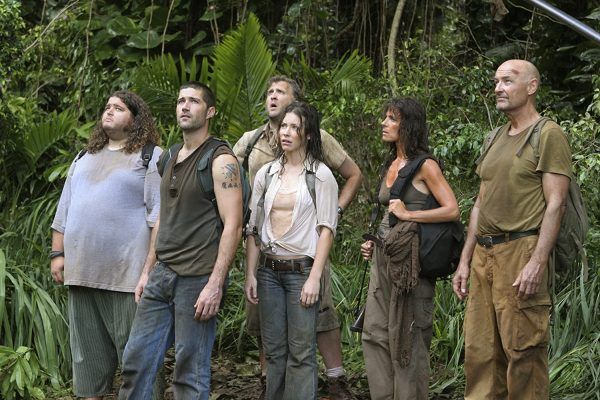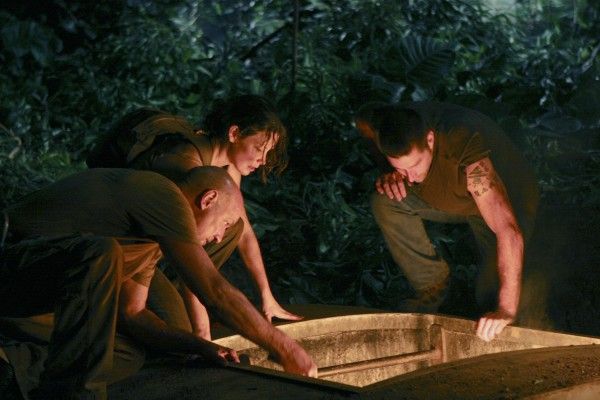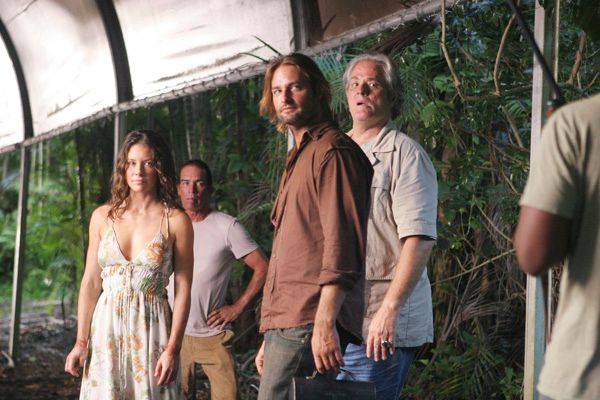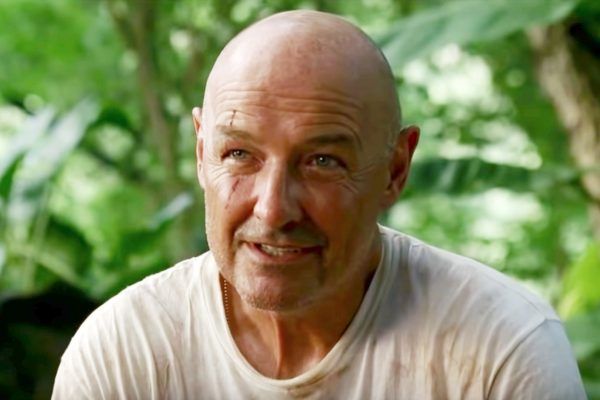-
Much has been written, said, and debated about Lost in the 10 years since it’s been off the air, but in that time the television landscape has changed dramatically precisely because of Lost. Shows like Mad Men and Breaking Bad ushered in the “prestige” era of television, during which seasons got shorter, storytelling got far more serialized, and major acting talents were no longer afraid of heading to “the small screen.” The fact that Lost — a heavily serialized story with supernatural undertones — survived at all on network television is a minor miracle, but people forget that spectacular first season (which won the Best Drama Series Emmy award) consisted of 25 episodes. Or, as co-creator and showrunner Damon Lindelof told me during a recent exclusive interview as part of our Collider Connected series, “that’s like the entire duration of The Leftovers.”
Indeed, Lost was groundbreaking. Not just because it was a heavily serialized network TV show that demanded your attention week-to-week, but because Lindelof and co-showrunner Carlton Cuse famously negotiated an end-date for the series in the middle of its run. Something that had never been done before.
In hindsight it’s funny, as Lindelof is currently (and rightfully) in the thick of the Emmys race for his incredible take on Watchmen for HBO — which concluded after just one season, and which we discuss in great detail in our upcoming Collider Connected conversation. Even his previous HBO series, The Leftovers, negotiated a “third and final season” renewal that let the writers plot out their own endgame.
But as Lindelof tells it, running for six seasons was not the original plan for Lost. In fact, they were talking about the end while making the pilot:
“I’m not trying to be diplomatic, I’m trying to give you the most accurate answer the way that I remember it, which is the conversations about wanting the show to end began as early as the pilot. One of the notes that we were getting back from ABC was ‘When are you gonna resolve these mysteries? And once you resolve these mysteries, why will people keep watching the show?’ And Level One of that was, ‘Well we’re gonna be introducing new mysteries as we go. So hopefully for every one that we answer, we’ve set up a new compelling mystery. If we get that balance right, they’re not gonna stack up.’ I think that we can both agree that we did not get that balance right.”
Even still, Lost asked a bunch of compelling questions, and Lindelof had hoped to wrap it all up after about three seasons:
“Lost was like, ‘What’s in the hatch? What’s up with the monster? Who’s the original Sawyer? How did Locke get in the wheelchair? What is the nature of the island? Why does it appear to be moving? Who are the Others?’ There were all of these compelling mysteries and so we were saying, ‘We wanna have this stuff answered by the end of Season 1, this stuff answered by the end of Season 2, and then the show basically ends after about three years.’ That was the initial pitch, and they were not even hearing it. They looked at particularly me — Carlton came on about midway through Season 1 and he joined the chorus of me — but they were just like, ‘Do you understand how hard it is to make a show that people want to watch? And people like the show? So why would we end it? You don’t end shows that people are watching.’”
It’s not hard to imagine ABC was flummoxed by Lindelof’s pitch to end the series after just a couple of seasons. As he says, that was just not done in the world of television in the mid-2000s — especially if something was a hit. So Lindelof and Cuse forged ahead with Season 2, which was still successful and churned out another 24 episodes’ worth of story, and then tried to re-engage ABC about ending the show. But at this point, Lindelof and Cuse began negotiating their own exit strategy since ABC wasn’t budging — they were going to leave the show after the end of Season 3:
“So we got all the way to the end of Season 2 and then tried to formalize the conversation again. At that point, it was formal because Carlton and I both had two-year deals that ended after Season 2, so we were now negotiating for the future of the show. They thought they were in a monetary negotiation, where it was like we were trying to get more money, and all we were trying to get was for them to agree to end the show. So neither side blinked, so we agreed to sign a one-year extension — Carlton and I — with the understanding that we’d be leaving at the end of the third season and someone else would be running the show. Right at the same time Alias had ended, so Lost absorbed a number of the fantastic Alias writers including Drew Goddard who had already written some episodes of Lost in the second season and Jeff Pinkner, who is incredible, was gonna kind of be the heir apparent for Season 3.”
Lindelof and Cuse were already foreseeing future problems with the flashbacks at this time:
“All this time when ABC would be like, ‘Why do you want to end the show?’ we’d say, ‘These flashbacks are finite. You can do like three flashbacks of Jack getting drunk and being self-destructive, or Charlie relapsing, or Kate running away and the marshal that is chasing her. But ultimately the first one feels like an origin story because you’re learning about that person for the very first time, but all the other ones feel like you’re treading water. So we’re gonna have to switch gears—we can introduce new characters who have new backstories, but people are invested in the old ones. We’re seeing about eight chess moves ahead and it ain’t gonna end pretty.’ And they just didn’t agree with us.”
Everything changed when Season 3 arrived, which ABC split in half. The first six episodes started airing, and it became clear the show’s writers were having trouble spinning their wheels:
“The beginning of Season 3 happens. Those six episodes air because ABC decides that they’re going to split the season into two parts… after those six episodes of Season 3 aired, they finally understood, and we were not phoning it in or trying to spike the show, we always did our best. But it became clear that we were working so hard to keep the characters on the island, and it was starting to be immensely frustrating. The flashbacks weren’t good anymore. Other than the addition of Michael Emerson as a regular and Henry Ian Cusick as a regular, and Adelwale [Akinnuoye-Agbaje] and Michelle Rodriguez and Cynthia Watros, the tail section, some of that stuff was working but all the other stuff wasn’t.”
At long last ABC agreed to end the series... after 10 seasons:
“Then they finally came to the table and we had a real conversation. They were like, ‘We have agreed to let you end the show.’… I just said to [ABC President] Steve McPherson, ‘Thank you. This is what’s best for the show,’ and he said, ‘We were thinking 10 seasons.’ Mind you, we’re halfway through Season 3, so first off how do you even think we’re gonna get to 10? That’s really the same as saying we’re not gonna let you end the show, because how many drama series even get to 10 seasons?”
Lindelof says they ideally were ready to end the show after four seasons, especially because at this point — halfway through writing Season 3 — they had already worked out the “Oceanic 6” storyline and the idea that some people were going to get off the island:
“I was like, ‘I was thinking more like four [seasons]’. Not because I was in a negotiation but because we had actually already worked out the Oceanic 6 story to some degree. We knew that a number of the characters were going to get off the island, they were going to have a very miserable time when they were off the island, and then they were going to come back for the finale. We felt like we could kind of do that starting in the back half of Season 3 and then have one more season, Season 4, which would have been a full season of television, twenty some-odd episodes, to do it all. And they were like, ‘How about nine?’ (laughs). So the agreement was we landed on six [seasons] with less episodes to give us more time in between seasons to plan things out. And then of course the fourth season was cut short by the writers’ strike, but everything else went relatively according to design. Not to say that everything we did worked, but we had a plan and we executed that plan.”
I think this is all incredibly fascinating, especially as it relates to those who claim Lindelof and Co. were “making it up as they went along.” First of all, “making it up” is how TV is made, but second of all Lost’s creators knew while making the pilot that this should be a finite story. It was ABC and the traditional network thinking that stretched the story out for so long, and ultimately resulted in the show’s writers trying to find ways to make new flashbacks for existing characters (like an origin story for Jack’s tattoos) without engaging their endgame storyline too early.
Knowing exactly how all of this went down actually kind of makes Lost even more impressive. Lindelof and his writing team stretched a story that really should have been three seasons out to six seasons, and by and large crafted a show that was compelling and emotionally engaging all up through the end. And in the process, they laid the groundwork for shows like Game of Thrones and Breaking Bad, which would ultimately have no trouble negotiating an endgame for their stories as networks began seeing the value in telling a complete story from beginning to end, and not just letting a drama series run on fumes.
Look for much more from our extended conversation with Lindelof on Collider soon. Watchmen is available to watch on HBO On Demand and HBO Max.





